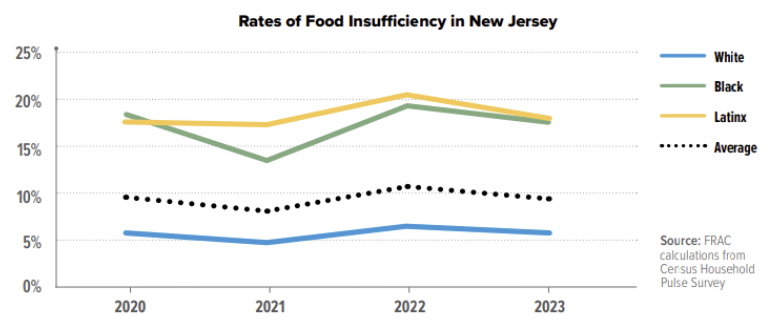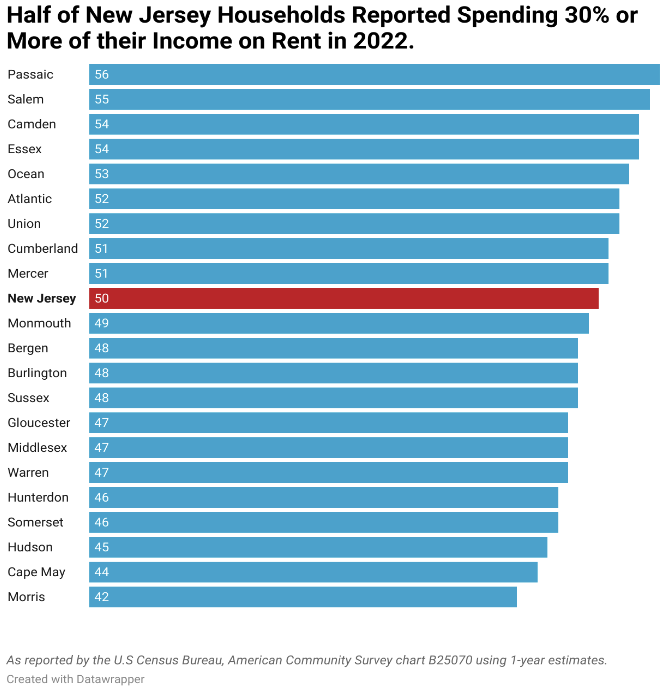Posted on March 11, 2024

By Alena Siddiqui
Data Analyst
For more information on this topic or kids count data, contact Alena at asiddiqui@acnj.org

Towards the end of 2023, the New Jersey Food Security Initiative (NJFSI) was launched. The initiative is funded by the Robert Wood Johnson Foundation and is being led by the Food Research & Action Center (FRAC). The purpose of this program is to not only improve food security in the Garden State but to create equitable access for healthier food for all. In 2023, the average rate for food insufficiency in New Jersey was almost 10% according to FRAC. Food insufficiency (or food insecurity) means that households may sometimes or frequently not have enough to eat. When broken down by race and ethnicity, it is apparent that Black and Latinx households are experiencing higher rates of food insufficiency compared to White households.

Food insecurity has long been an issue in the United States, and as with many other issues, the COVID-19 pandemic shed a light on this long ignored problem. In 2020, an estimated 9%, or 175,830 children in New Jersey were determined to be food insecure (New Jersey Kids Count 2023) and this estimated number has risen to 197,280, or 9.8%, in 2021 (Feeding America). Food insecurity can be caused by a variety of factors such as unemployment, poverty, lack of affordable housing, and not living in areas that have access to healthy foods.
The cost of living in New Jersey is quite high. In 2022, 50% of New Jersey households were spending 30% or more of their income on rent. Many counties reported even higher percentages than the state, as is the case in Passaic (56%) and Salem (55%). It is generally recommended that households aim to spend less than 30% of their income on rent as this allows for the rest of the income to cover other necessary expenses as well as saving for the future.

The New Jersey Food Security Initiative is currently expected to run for three years. The effort plans to also support already established food insecurity-related initiatives throughout the state by issuing resources, additional funding opportunities, and more. To learn more, visit NJFSI.

